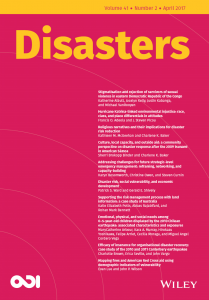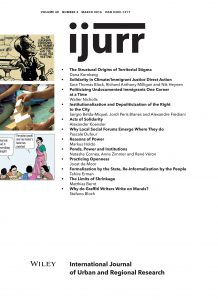Drawing a line in the sand: diagnosing autism spectrum conditions in the UK
If we think about it diagnostically, somewhere there is a line drawn in the sand . . . and where that line is changes really, historically. Consultant Clinical Psychiatrist A sociology of diagnosis approach considers the place of diagnosis in the institution of medicine and the social framing of disease definitions. Considering diagnosis as a social process rather than a ‘moment of clinical purity’ allows investigation into the social forces that may shape diagnosis and the cultural discourses drawn upon....



















1728-4457/asset/PopulationCouncilLogo.jpg?v=1&s=03074651676b98d6b9d0ef1234bd48fe7ff937c3)